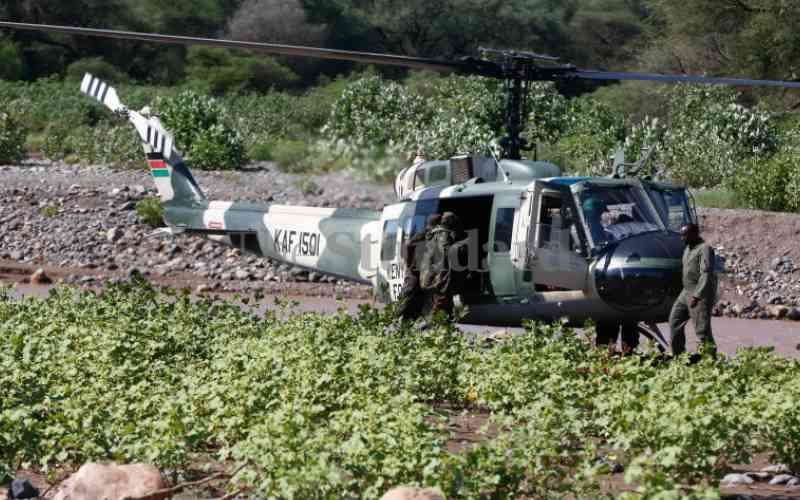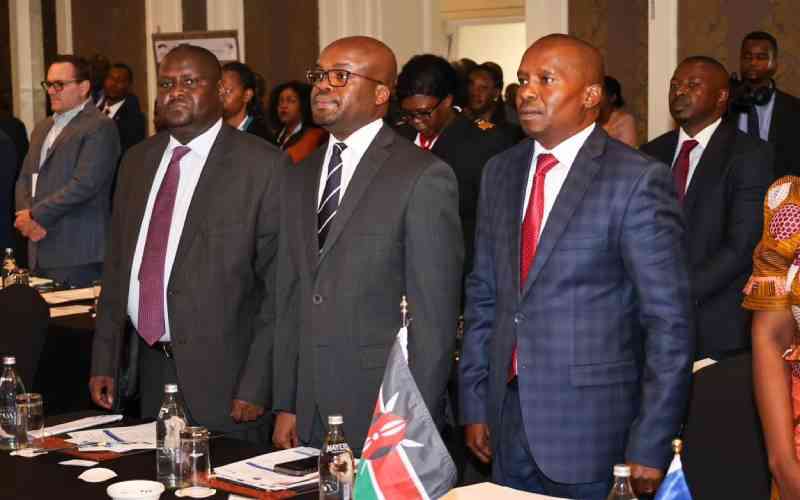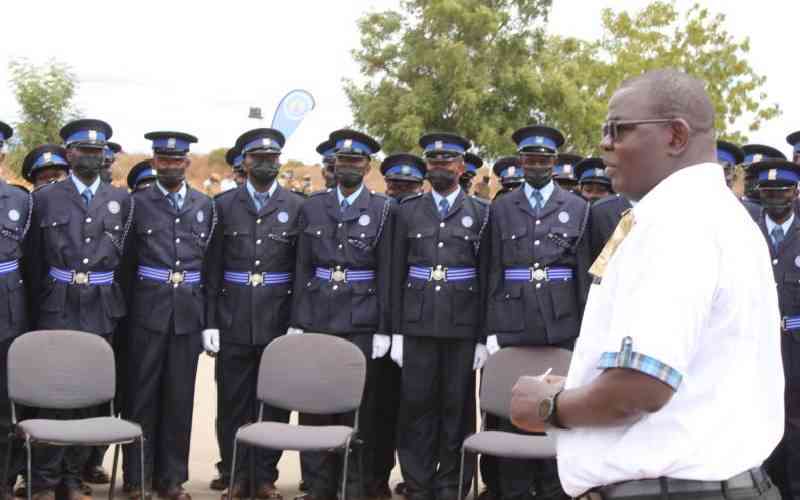Protecting Kenyans against terrorist attacks in 2015 is expected to remain a yardstick by which Kenyans will judge the performance of the Jubilee government.
This year saw the confidence of Kenyans in the Government's capacity to deal with terrorism plummet to new laws as terrorist groups successfully carried out devastating attacks across the country, most notably at the Coast and North Eastern parts of the country.
Lives were lost and as the tourism sector took a plunge.
Although Al-Shabaab is gradually losing territory in Somalia and its capacity to attract and maintain members is weakening, the group still remains lethal, if Mpeketoni and Mandera attacks are anything to go by. Kenyans will be watching keenly to see if the recent appointment of Joseph Nkaissery as Interior Cabinet Secretary to replace Joseph ole Lenku will be a turning point.
But analysts have pointed that out changes at the top without restructuring the whole security system may not achieve much.
Even during his acceptance speech, Nkaissery was alive to the fact that too high expectations are placed on his shoulders by Kenyans to address insecurity.
"As I take office, I wish to state clearly that sorting out the security problem is not, and cannot be, a Nkaissery-only affair. It will require each and every one of us to address all the threats that impede Kenya from realising its dream," he said.
Corruption, lack of information-sharing and poor co-ordination among security organs have been blamed for the bungled performance in preventing and responding to terrorist attacks in 2014.
Rapid-response forces
"There is an urgent need for the policy makers and security forces to change their approach from being reactive to proactive in order to prevent attacks and not just swinging into action after lives have been lost. This strategy requires enhanced intelligence gathering and rapid-response forces," National Civil Society Congress President Morris Odhiambo said.
He added: "Instead of over-reliance on the military to address terrorism and insecurity issue, the Government should drive police reforms forward and boost their capacity to deliver their mandate through better equipment and terms of service."
National Muslim Leaders Forum Chairman Abdullahi Abdi said in 2014 the Government, through the police adopted indiscriminate tactics such as profiling and mass arrests and detentions instead of zeroing in on potential suspects through enhanced intelligence gathering.
"We call on the Government to upgrade to smarter counter terrorism strategies next year by enhancing partnerships and co-operation with local communities rather than alienating them. The war on terrorism cannot be won by security agencies alone," he advised.
He continued: "The Government should not treat certain sections of the population as enemies but as partners. Only this will boost information sharing and will isolate the troublemakers. Previous tactics have alienated sections of Kenyans who feel they are being targeted."
Security analyst Andrew Franklin asserts that the levels of violence, alienation and radicalisation in Coast have continued to increase unabated by the deaths or disappearances of "radical" religious leaders.
Stay informed. Subscribe to our newsletter
He adds that mass arrests have failed to lead to hidden caches of Al-Shabaab weapons and explosives anywhere in Kenya.
"Without strict adherence to the rule of law and the need for good governance within the norms associated with a modern nation state, the Government will continue losing its war on terror and will fail to counter the violence in Mandera, Wajir, Garissa and Lamu Counties," he said.
He added: "The Government has not recognised the need for a comprehensive strategy to defeat Al-Shabaab along its border with Somalia nor to mitigate alienation of Coastal peoples."
A recent report by the Institute of Security Studies, based in South Africa, revealed that "heavy-handed" counter-terrorism tactics such as mass arrests and detention were among the leading drivers of youth radicalisation, especially in the Coast and North Eastern region.
Politicisation of insecurity in the country between the ruling alliance and the Opposition is expected to spill over to 2015 as the two sides lock horns over the recently passed security laws which have divided the country down the middle.
In 2015, the police will be waiting keenly to see what the Government will do regarding their terms of service and working conditions to enable them do a better job of securing the country.
 The Standard Group Plc is a
multi-media organization with investments in media platforms spanning newspaper
print operations, television, radio broadcasting, digital and online services. The
Standard Group is recognized as a leading multi-media house in Kenya with a key
influence in matters of national and international interest.
The Standard Group Plc is a
multi-media organization with investments in media platforms spanning newspaper
print operations, television, radio broadcasting, digital and online services. The
Standard Group is recognized as a leading multi-media house in Kenya with a key
influence in matters of national and international interest.
 The Standard Group Plc is a
multi-media organization with investments in media platforms spanning newspaper
print operations, television, radio broadcasting, digital and online services. The
Standard Group is recognized as a leading multi-media house in Kenya with a key
influence in matters of national and international interest.
The Standard Group Plc is a
multi-media organization with investments in media platforms spanning newspaper
print operations, television, radio broadcasting, digital and online services. The
Standard Group is recognized as a leading multi-media house in Kenya with a key
influence in matters of national and international interest.








